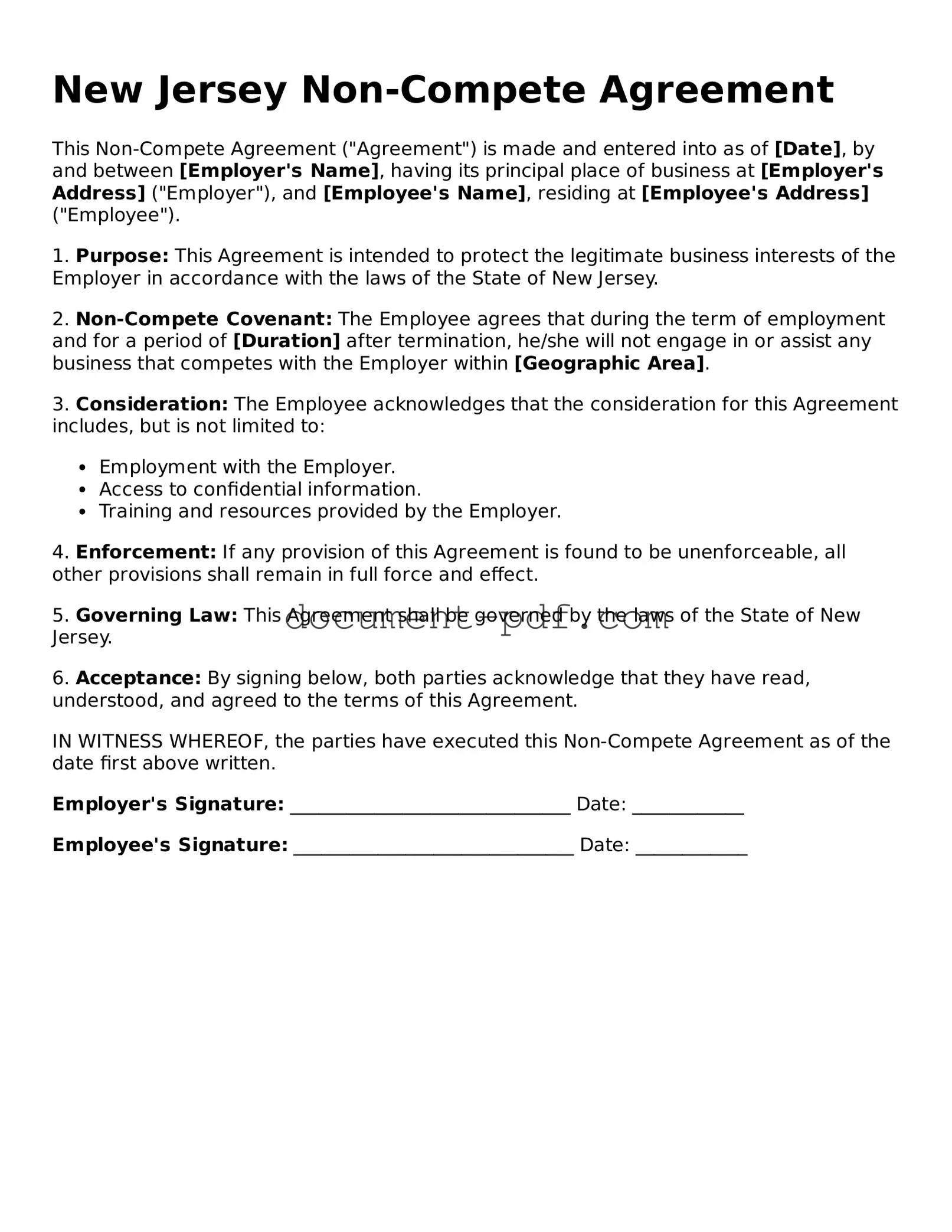Attorney-Verified New Jersey Non-compete Agreement Template
A New Jersey Non-compete Agreement is a legal document that restricts an employee's ability to work for competitors or start a competing business for a specified period after leaving their current employer. This agreement aims to protect the employer's business interests, trade secrets, and proprietary information. Understanding the terms and implications of this form is crucial for both employers and employees.
Ready to take the next step? Fill out the form by clicking the button below.
Access Non-compete Agreement Editor Here

Attorney-Verified New Jersey Non-compete Agreement Template
Access Non-compete Agreement Editor Here
Finish the form without slowing down
Edit your Non-compete Agreement online and download the finished file.
Access Non-compete Agreement Editor Here
or
Click for PDF Form
